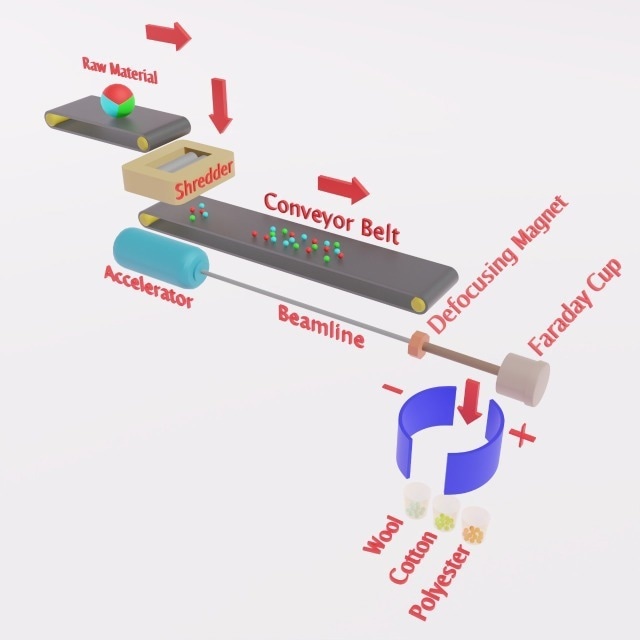Currently, only 1% of textile waste is recycled into new clothes. Recycling textile polymers is a costly and challenging task, as is the separation and recycling of blended textiles – complex mixtures of different fibres, often cotton or wool with synthetic materials. Could particle accelerators solve the problem of textile waste and contribute to circular fashion?
 The student team proposed to separate textile fibres using an electron beam from a Van de Graff accelerator. Image Credit: FabRec team
The student team proposed to separate textile fibres using an electron beam from a Van de Graff accelerator. Image Credit: FabRec team
This was the subject of the winning project at this summer’s challenge-based innovation event, held by the EU-funded I.FAST project. A multi-disciplinary team of students proposed the use of an electron beam to segregate different fabric components through electrostatic separation. This would be done with used and unused clothes and the separated components would be reintroduced into the manufacturing cycle of recycled clothes.
The event explored how accelerator technologies could address environmental issues. It brought together 24 students of 14 different nationalities, with as many different backgrounds: physics and engineering, as well as environmental science, communication and sociology. Three other projects were presented: studying pollen sterilisation of invasive plants; investigating innovative methods to recycle solar panels; and examining in-situ corrosion prevention of offshore wind turbines.
The next edition of the I.FAST-CBI project will take place in summer 2024 and will focus on the topic “Accelerators for Health”. Applications will open in December 2023.